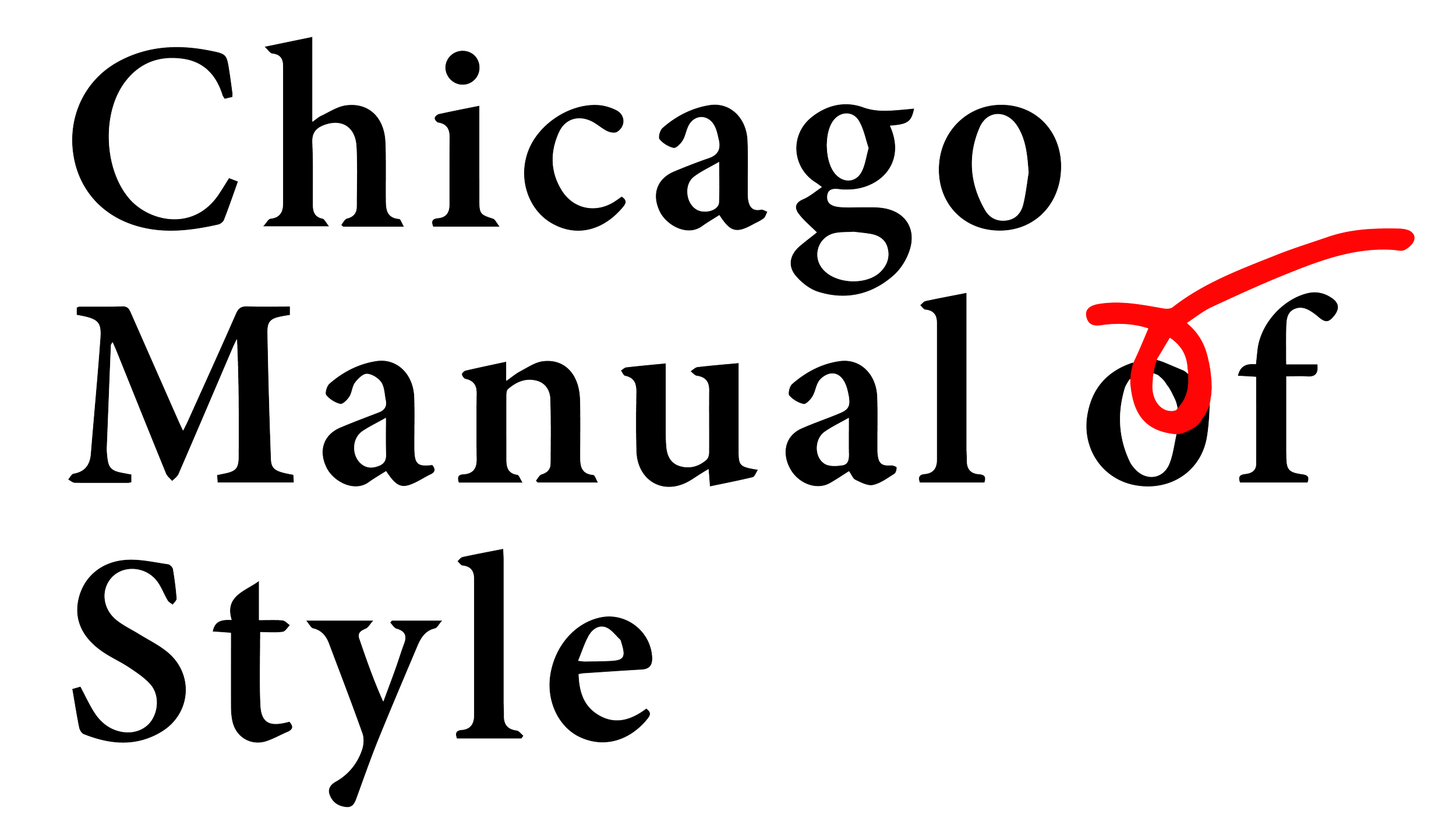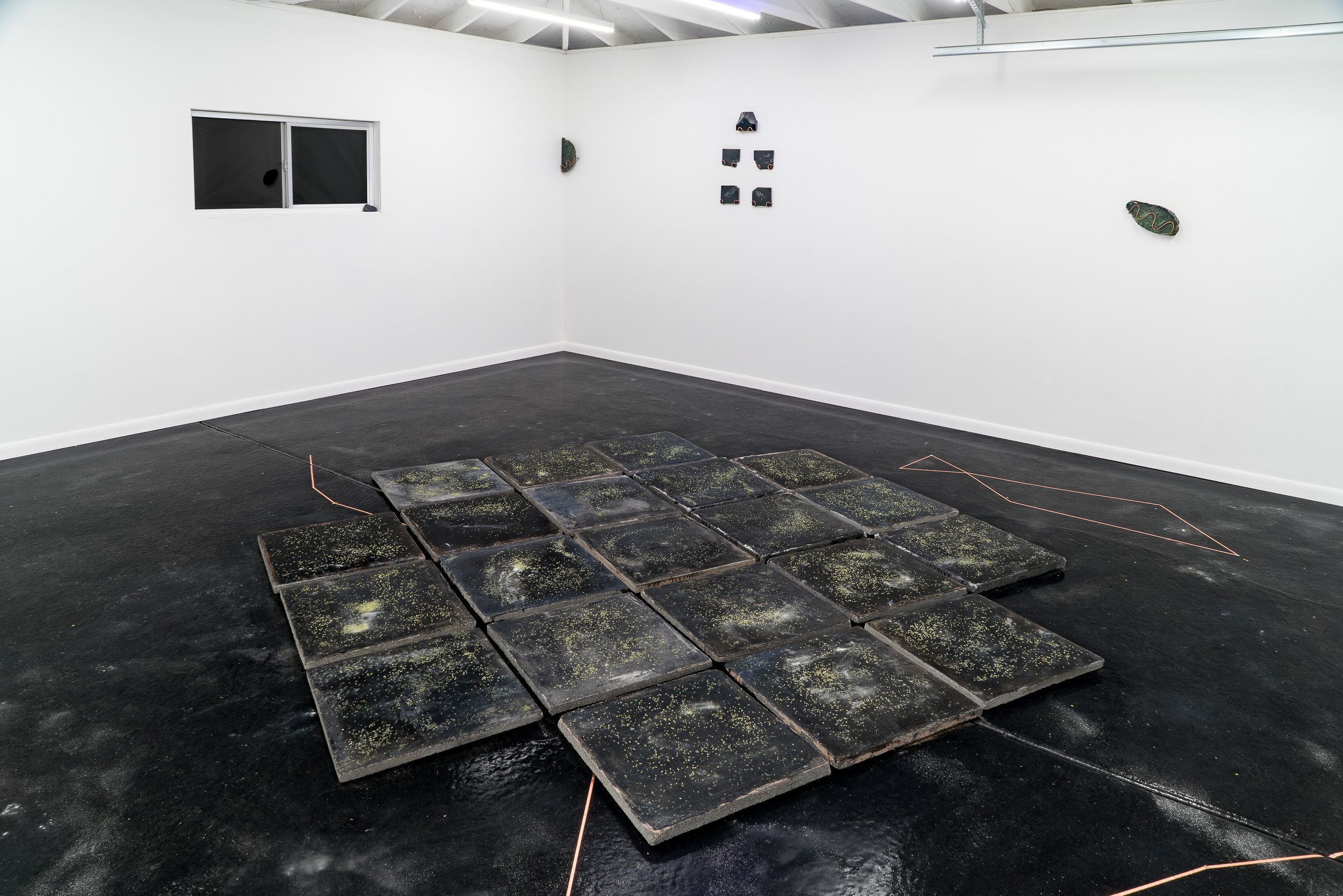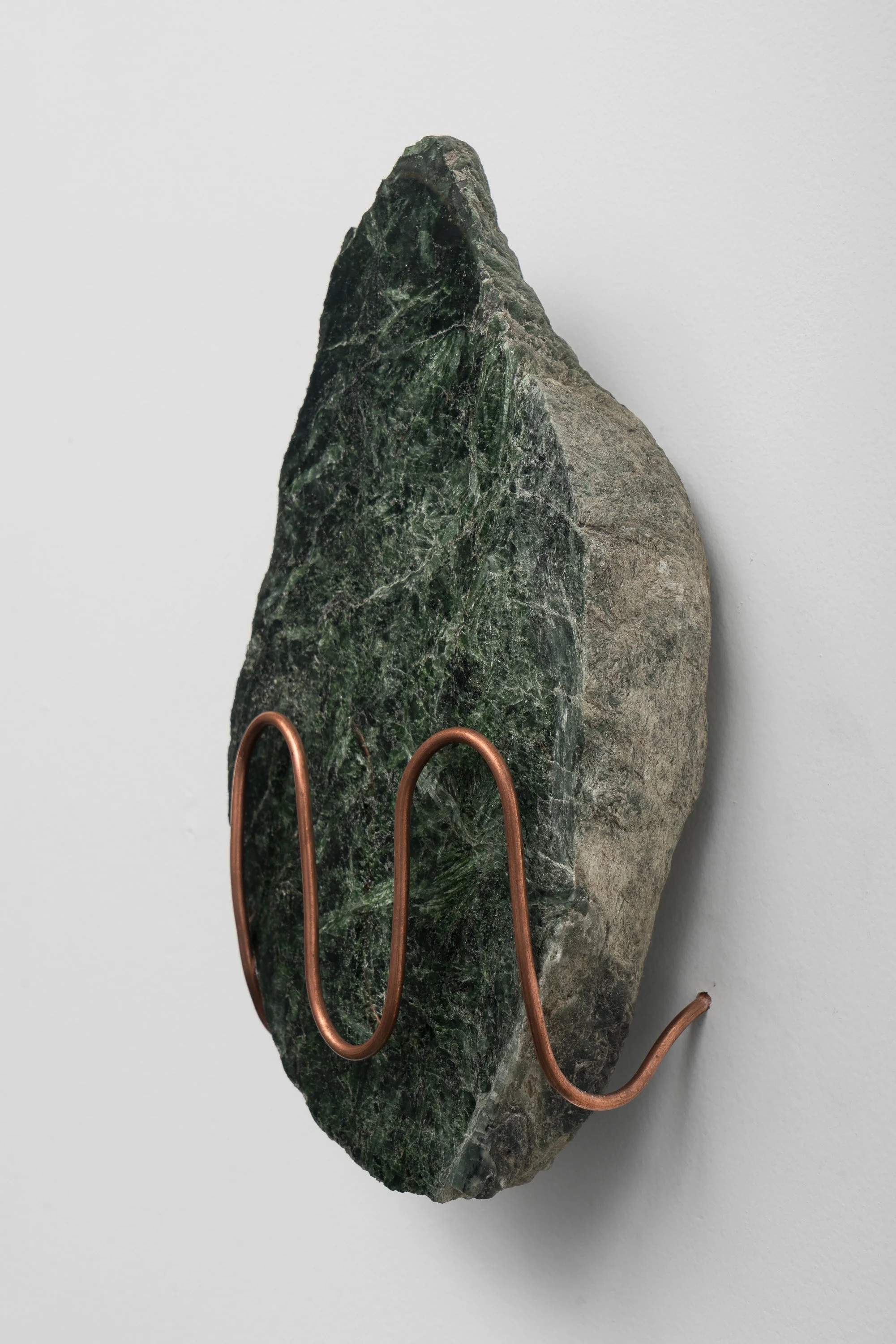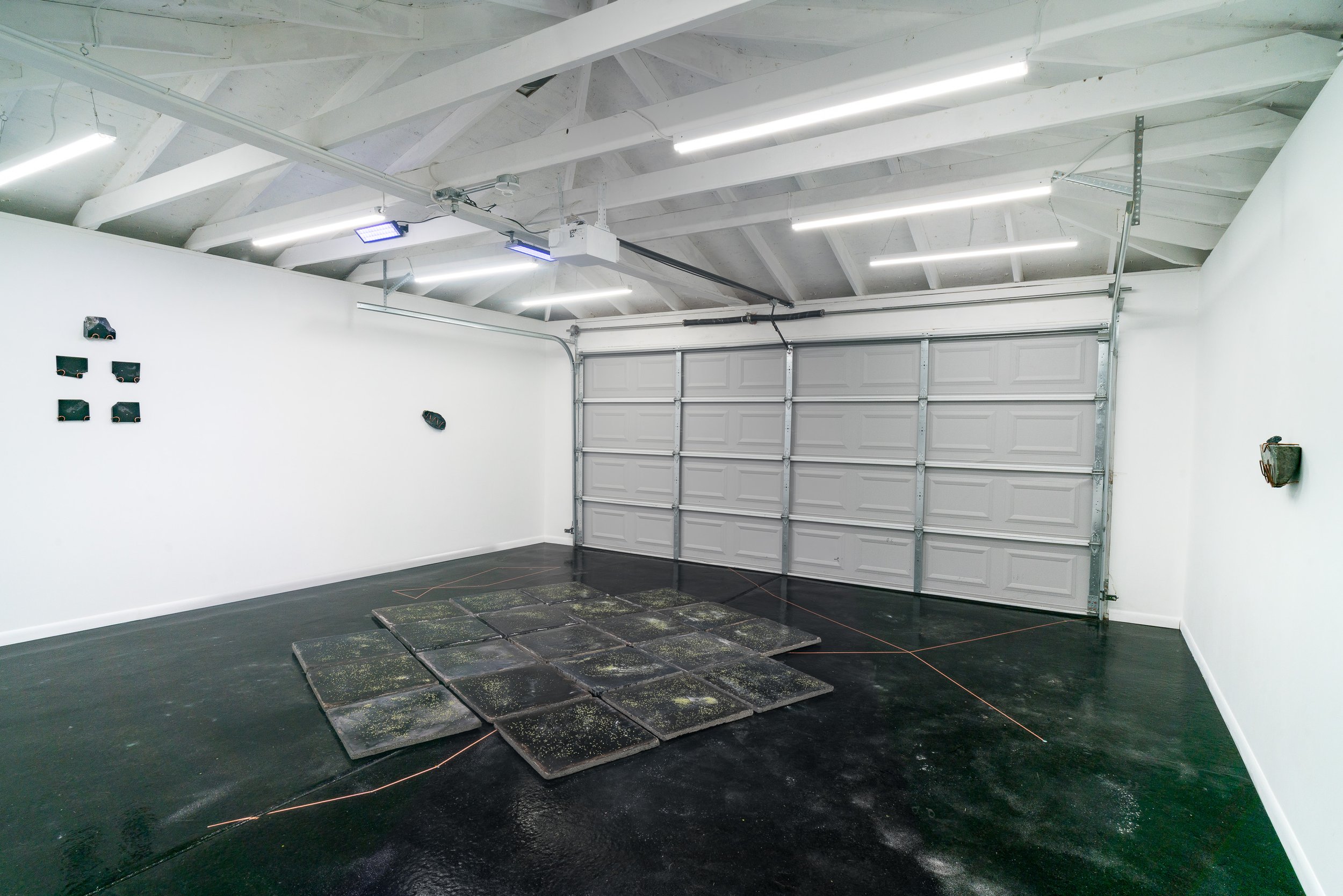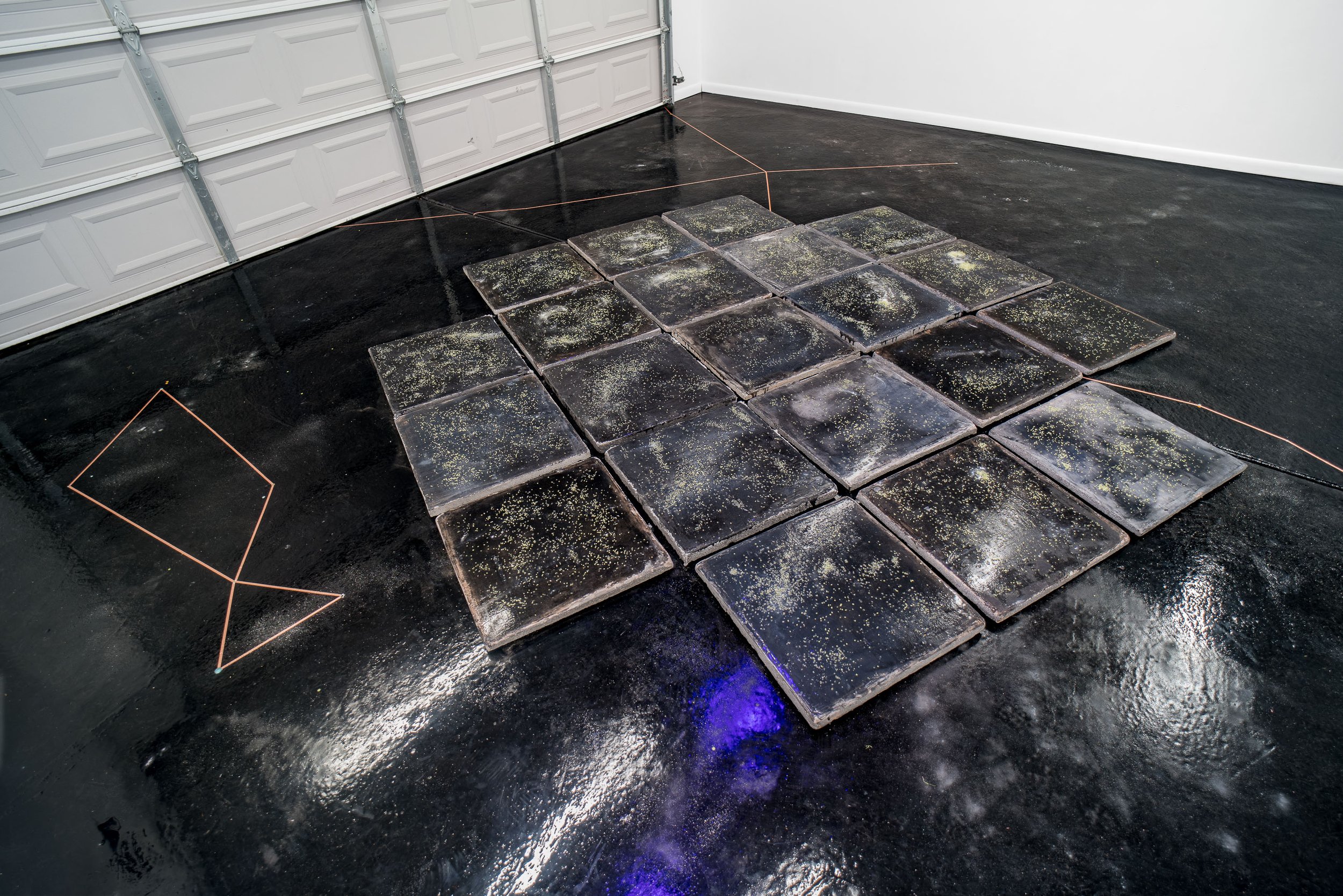Planets Are Slow Animals
Joel Kuennen
05.24–09.01, 2023
Curated by Stephanie Cristello
Joel Kuennen, Planes of Knowledge (2023). Calcium hydroxide, portland cement, granulated coal slag, perlite, pumice, carbon, iron (II) oxide, silicon carbide, olivine, strontium aluminate europium dysprosium, UV resin. Installation view, Planets Are Slow Animals, curated by Stephanie Cristello at Chicago Manual Style. Photo: Bob.
CHICAGO, IL—A manifestation of Joel Kuennen’s (b. 1984, Wisconsin) research into abiogenesis and exoplanets, this exhibition distills the artist’s experiments with olivine—a magmatic mineral essential in geological carbon sequestration and tectonic stability that makes the climate of Earth hospitable. In a series of sculptures alongside a permanent architectural intervention, Kuennen transforms Chicago Manual Style into a poetic material meditation on how other worlds enter our imaginary.
Set into the floor of the gallery are hundreds of olivine and semi-precious crystals, each placed to mark the position of a star system where currently known exoplanets have been catalogued. Here, the site-specific floor map transposes the celestial constellations that have determined our sense of space and self, namely Lyra (Lyre) and Cygnus (Swan). Identified using the transit method—a brief, observable absence of light from a star that indicates that a planet has passed between us and it—the invisible presence of exoplanets have begun to inform our futures. The celestial bodies of consequence so tied to human history are no longer astrological configurations or deified planets, but far off worlds still too distant to see. In the center of the gallery space, concrete, silicon carbide, olivine, and coal slag tiles are arranged in the cruciform shape of the Kepler field. The grid echoes both the scientific approach to galactic surveys as well as the embedded religious origins of a new space colonialism[1]. As interplanetary travel and space tourism verge on realization, the artist’s ongoing conceptual project questions the neocolonial frame so deeply integrated within the societal structures on Earth, and the dangers of projecting these values into the cosmos.
Across Kuennen’s work, olivine has become a material signifier for the presence of life. In The Living Earth (2023), the pyroclastic flow pattern within each terrene of polished serpentinized olivine echoes formally throughout the installation. Affixed to the wall by a solid copper support representing the curve of the resonating frequency it emits, the sound of the crystal is given shape. Olivine provides a platform for biological life to rest, interact, and evolve—it is also believed to make up the majority of interstellar dust. In A Messianic Frame (2023), a series of five polished basalt slabs inset with synthetic olivine that Kuennen grew in a lab from natural material during the Enter the Hyperscientific residency at the Swiss Federal Institute of Technology in 2022,[2] we can see the prevalent color of the cosmos up close. The aquamarine stones, set with the UV-reactive mineral strontium, casts a subtle glow imparting the small disks with a depth and aura of life.
Kuennen’s research has revolved around the fundamental proposition that life is not special. Rather, life is radically ubiquitous. Once a site of wonder and spiritualistic determination, the cosmos is on the cusp of becoming just another resource to mine.
[1] See Mary-Jane Rubenstein’s book Astrotopia (2022) for further discussion on the religious underpinnings of this new form of space colonialism.
[2] Using five infrared lasers, Kuennen appropriated a process normally used in superconductor and semiconductor research to grow seven single crystals of olivine from natural source material. This process led to a novel growth technique that they will present to the International Conference on Crystal Growth and Epitaxy in July 2023. One of these crystals was used to create an olivine crystal oscillator to hear the time of Earth, on exhibition at Fondation Opale in Lens, Switzerland from June 18–November 12, 2023.
